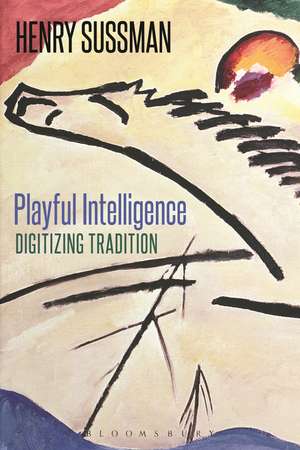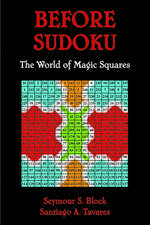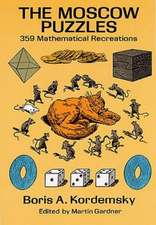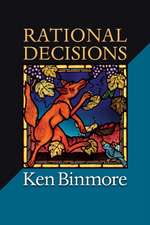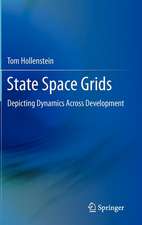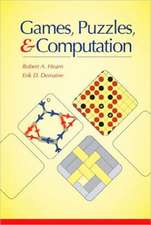Playful Intelligence: Digitizing Tradition
Autor Henry Sussmanen Limba Engleză Paperback – 22 oct 2014
| Toate formatele și edițiile | Preț | Express |
|---|---|---|
| Paperback (1) | 238.96 lei 6-8 săpt. | |
| Bloomsbury Publishing – 22 oct 2014 | 238.96 lei 6-8 săpt. | |
| Hardback (1) | 721.88 lei 6-8 săpt. | |
| Bloomsbury Publishing – 22 oct 2014 | 721.88 lei 6-8 săpt. |
Preț: 238.96 lei
Preț vechi: 270.44 lei
-12% Nou
Puncte Express: 358
Preț estimativ în valută:
45.73€ • 47.45$ • 38.22£
45.73€ • 47.45$ • 38.22£
Carte tipărită la comandă
Livrare economică 15-29 martie
Preluare comenzi: 021 569.72.76
Specificații
ISBN-13: 9781472568816
ISBN-10: 1472568818
Pagini: 416
Ilustrații: 25 illus
Dimensiuni: 156 x 234 x 18 mm
Greutate: 0.75 kg
Ediția:New.
Editura: Bloomsbury Publishing
Colecția Bloomsbury Academic
Locul publicării:London, United Kingdom
ISBN-10: 1472568818
Pagini: 416
Ilustrații: 25 illus
Dimensiuni: 156 x 234 x 18 mm
Greutate: 0.75 kg
Ediția:New.
Editura: Bloomsbury Publishing
Colecția Bloomsbury Academic
Locul publicării:London, United Kingdom
Caracteristici
Builds the missing bridge between contemporary digitalization and traditional approaches to the humanities
Notă biografică
Henry Sussman is Visiting Professor of Germanic Languages and Literatures at Yale University, USA.
Cuprins
AcknowledgementsList of IllustrationsPreface1. Reading Kandinsky2. From The Brothers K. to Joseph K.: The Digitization of Literature3. The Calculable, the Incalculable and the Rest: Kafka's Virtual Environment4. Urban Introjections: Berlin Alexanderplatz5. Theory on the Fly: Critical Synthesis under Conditions of Material Pirating and Borrowed Time6. Playful Healing: The Transitions of D. W. Winnicott7. The Figure in the Network: Douglas Hofstadter and the Ethics of Intelligence8. The Phenomenology of JetlagAfterword: Healing, SystematicallyNotes and ReferencesIndex
Recenzii
There is, I think, nothing out there truly comparable to Playful Intelligence in terms of focus, insight, scope, cross-disciplinary applicability, theoretical urgency, and learning.
From Kandinsky to Kafka to systems theory to psychoanalysis to digital feedback loops to Roberto Bolaño to Zen... A sprawling, maddening, jet-lagged, and eminently stunning trip through the ruinous Arcades of the 21st century.
Sussman rises to the task with a book that is as breathtaking in its scope as it is trenchant in its insights. From cybernetics to literature to philosophy and back again, Sussman's ignition of his inexhaustible erudition with a promethean spark of creativity powers a riveting and relentless interrogation of intelligence, a notion that engulfs those of us in the academic domain so closely that it seldom occurs to ask ourselves what, exactly, it is, how its conceptualization affects us, and how we came to think of it the way we do today.
Who knew high theory could still be this much fun? Sussman's Playful Intelligence stages a mass wedding (or is it a group grope?) in which Dostoevsky, Kafka, Derrida, and Lacan pair off with the unexpected likes of Douglas Hofstadter, Anthony Wilden, Gregory Bateson, and D. W. Winnicott. His delightful critical dances are enlivened with rhetorical flights of uninhibited and erudite wordplay. Swinging cybernetics across literary landscapes, Sussman takes systems discourses on joyrides that both disrupt their scientific pretensions and refresh their relevance to the philosophical humanities. Never dull, utterly sincere, sublimely good-natured, and blithely beyond mundane academic cares, Playful Intelligence performs its theme to perfection.
Playful Intelligence exemplifies the encouragement that interdisciplinary thinking can provide to critics who still believe in the salutary potential of humanistic endeavors.
From Kandinsky to Kafka to systems theory to psychoanalysis to digital feedback loops to Roberto Bolaño to Zen... A sprawling, maddening, jet-lagged, and eminently stunning trip through the ruinous Arcades of the 21st century.
Sussman rises to the task with a book that is as breathtaking in its scope as it is trenchant in its insights. From cybernetics to literature to philosophy and back again, Sussman's ignition of his inexhaustible erudition with a promethean spark of creativity powers a riveting and relentless interrogation of intelligence, a notion that engulfs those of us in the academic domain so closely that it seldom occurs to ask ourselves what, exactly, it is, how its conceptualization affects us, and how we came to think of it the way we do today.
Who knew high theory could still be this much fun? Sussman's Playful Intelligence stages a mass wedding (or is it a group grope?) in which Dostoevsky, Kafka, Derrida, and Lacan pair off with the unexpected likes of Douglas Hofstadter, Anthony Wilden, Gregory Bateson, and D. W. Winnicott. His delightful critical dances are enlivened with rhetorical flights of uninhibited and erudite wordplay. Swinging cybernetics across literary landscapes, Sussman takes systems discourses on joyrides that both disrupt their scientific pretensions and refresh their relevance to the philosophical humanities. Never dull, utterly sincere, sublimely good-natured, and blithely beyond mundane academic cares, Playful Intelligence performs its theme to perfection.
Playful Intelligence exemplifies the encouragement that interdisciplinary thinking can provide to critics who still believe in the salutary potential of humanistic endeavors.
